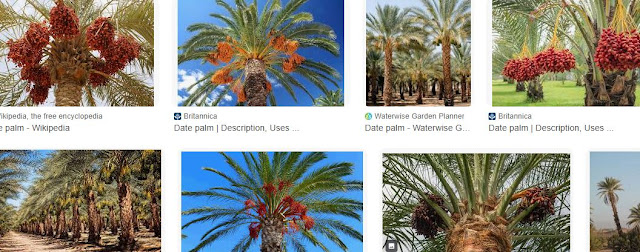‘On exactly the fifteenth day of the seventh month, when you have gathered in the crops of the land, you shall celebrate the feast of the Lord for seven days, with a [o]rest on the first day and a [p]rest on the eighth day. 40 Now on the first day you shall take for yourselves the [q]foliage of beautiful trees, palm branches and branches of trees with thick branches and willows of the brook, and you shall rejoice before the Lord your God for seven days. 41 So you shall celebrate it as a feast to the Lord for seven days in the year. It shall be a permanent statute throughout your generations; you shall celebrate it in the seventh month. 42 You shall live in booths for seven days; all the native-born in Israel shall live in booths, 43 so that your generations may know that I had the sons of Israel live in booths when I brought them out from the land of Egypt. I am the Lord your God.’” NASB
gather some branches from the beautiful trees in the area: palm fronds, limbs thick with leaves, and branches from the river willow. VOICE BIBLE
And ye shall take you on the Yom HaRishon the fruit of the citron tree, branches of temarim (date palms), and twigs of plaited trees, and willows of the brook; and ye shall rejoice before Hashem Eloheichem shivat yamim. ORTHODOX JEWISH BIBLE
What is Citron ?
A citron tree (Citrus medica) is a small, thorny evergreen tree or shrub known for its large, lemon-like fruits with thick, warty rinds. It's one of the oldest citrus varieties and is cultivated in tropical and subtropical regions. Citrons are primarily used for their fragrant zest and thick, white pith, which is often candied or used in preserves.
Now on the first day you shall take for yourselves the foliage of beautiful trees, branches of palm trees, and boughs of thick (leafy) trees, and willows of the brook [and make booths of them]; and you shall rejoice before the Lord your God for seven days.
So linking this up with Matthew Mark Luke John personalities and the four living beings we have a kind of rough mix of impressions in the Spirit, not mane easier by the fact that the three lists of 4 beings aren't even standard but catching different shades of our humanity eg Mark type stolid Ox dependability and project completion , but also the Lord of the Rings Sam Ganges, Cherub face quality.
Some translations take citron tree as comely trees which they are also having a fresh lemony fragrance.
Date palm trees for fruitful trees.
Thick trees is sometimes read as thick boughs, or thick plaited branches.
But the willow tree idea remains standard.
We all wrestle something n earth to be fruitful.
Mathew types wrestle at quite large scale to pull off direction and ordering, and it can be quite a confrontation with Status quo or other unruly spirits and ideas in the other quartiles.
Marks are often wrestling with order dates and deadlines to see tasks completed.
John types are actually seeing into the unseen realm and bringing these things into our current reality. Like the bowed willow, the fourth quartile carry this stuff but the other quartiles think we are doing nothing at all.
This is born out in this description.
From https://hermeneutics.stackexchange.com/questions/68987/what-is-the-symbolism-related-to-lev-2340
 |
Some Rockers look like willow trees |
Jesus didnt look like He was doing anything at the very height of His prophetic work ., His Lamb calling. It fools Jews to this day .
On one level the life of Watchman Nee and my own life look an absolute waste. Nee's old headmaster actually said that to him.
But this is why we must get this message out to the rest of the quartiles. We are indeed labouring to bring in manifestation here, but we arent using natural means.
Maybe some write, some sing some are playwrites and poets, some are mystic teachers and prophets, but our value isnt a load of citrin bling or date palm taste or , lots of thickly interwoven branch waving. Franz Kafka explains the sort of things we are doing in parables.
100 years in people do know Kafka is describing things like impersonal scary bureaucracy, but there are many more details than this in his short stories and novels.





No comments:
Post a Comment